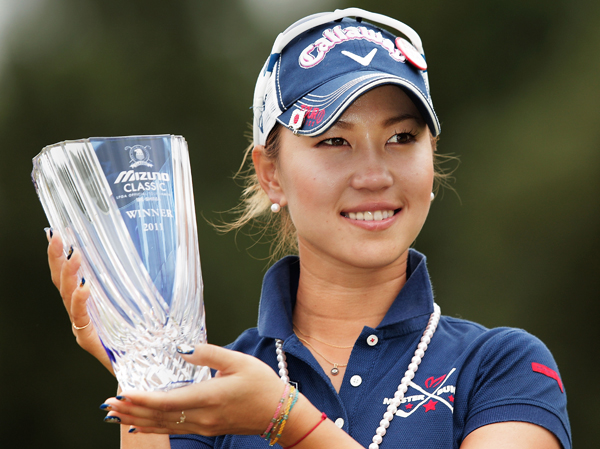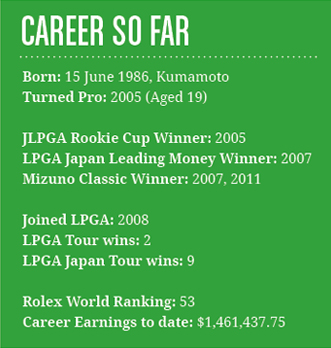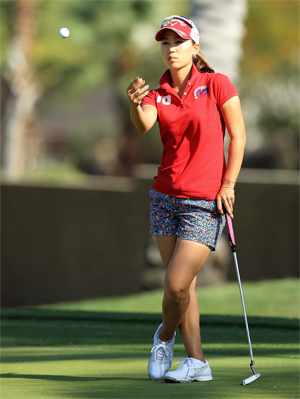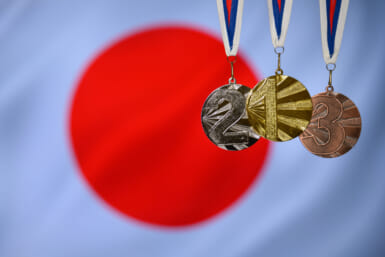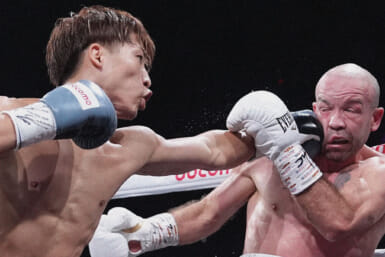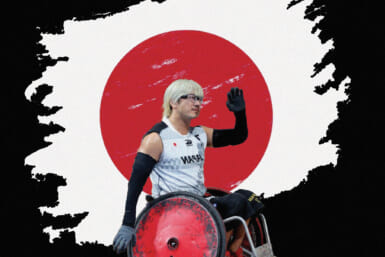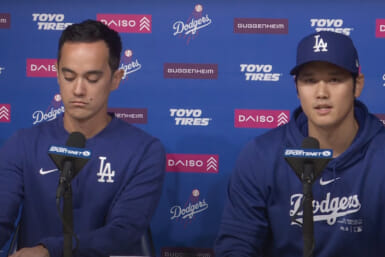In 2007, Momoko Ueda took the Japan LPGA tour by storm, becoming the youngest player to finish first on the money list after winning five tournaments. Stylish and super talented, it wasn’t long before she became a household name in her homeland.
Being just 21 at the time, though, achieving success in her own country was not enough for the young sensation. She wanted to prove herself on the international stage and that meant playing in America.
“Of course it would have been much easier to stay on the Japan tour but it was always my dream to play in the States,” Ueda, who is 25, tells Weekender. “Whether you are talking about money or fame, America is the place to be.” Walking onto the green outside Japan, she says, the passion of the audience is palpable. The atmosphere is intense.
In Japan, it is more subdued, with ripples of applause and none of the heat she feels would push her harder to succeed.
“I think for a golfer to be truly able to say that they have made it on the world stage,” Ueda says, “they must win in the US.”
The American LPGA tour is the ultimate test of a golfer’s credentials. Ueda qualified after winning the 2007 Mizuno Classic (a tournament jointly sanctioned by the US based LPGA tour and the Japan LPGA, which she also won in 2011), and is now in her fifth year. Spending more than half of her time abroad, she has found life tough.
Ueda feels that with language skills lacking, it is difficult to express “even half” of her ideas or personality and she can feel isolated on tour.
With a relentless schedule of sponsor meetings and media rounds, almost all of it in English, it is almost impossible to be independent, she says, “sometimes, I feel like a baby.”
The LPGA funds English language teachers to assist Japanese players to help with this but, even with this support, Ueda, who seems such a naturally outgoing and talkative person, has found life frustrating.
Playing abroad can often prove difficult for Japanese sports stars but victories help. After a long barren spell, Ueda has got that winning feeling back again, after taking the Mizuno Classic for the second time last November and she is hopeful that it will be the catalyst for further success.
“That tournament opened the door to America for me several years ago but, to go further I have had to go through several walls. Of course, I am delighted to have won again in Japan. But it has just made me realize how much I want to win in the US.”
This inner drive to succeed is something she has had since she started playing the sport, aged just nine. Ueda is used to doing things the hard way; many golfers come from privileged backgrounds but that certainly wasn’t the case with Ueda.
At 10 she earned a scholarship and invited to join the prestigious Sakata golf academy, where she could borrow equipment and use the course for free. It was an opportunity she will never forget.
“Golf academies are pretty rare in Japan,” Ueda says. “It [Noburio Sakata’s school] was the only one we had here and I owe him a lot for that chance. I am not planning to retire anytime soon but, when I eventually do, I would like to give something back to the next generation.”
She wants to inspire the youth of today, the same way Karrie Webb, Annika Sorenstram and Tiger Woods inspired her. These are charismatic choices for role models; their strong personalities matched their talent and this made them more interesting to watch, Ueda explains, saying that her dreams of following in the footsteps of these kind of players were not only based on talent.
Now, it is Ueda who young female golfers aspire to be like. She has the whole package, with playing ability and a solid reputation built on substance, not just style.
Fashion, it is clear though, is a passion. She seems keen to add that it does come second behind golf.
She loves designers like Stella McCartney, Philip Lim and Jeanne Valet and spends a lot of her free time flicking through fashion magazines. “In the past, people tended to see golfers as quite reserved but I always thought, ‘why shouldn’t players look good?’”
Now golf is viewed as a fashionable sport and this has led to a rapid increase in the number of women playing it here. That is something that really pleases Ueda. “I want to see even more professionals coming through. I have a great relationship with the junior players and the competition they provide can only help me become a better player.”
Ueda, now 25, is mostly positive about how her game is developing. Whilst she finds it hard to smile on the green – under intense scrutiny she has said that she struggles – that doesn’t mean she isn’t pleased to be on the LPGA tour.
Momoko loves playing in front of fans from overseas but hopes she can work on producing performances under pressure and find a balance between thriving on that and feeling relaxed enough.
When she talks about the enthusiasm of the crowds in the US and Europe, you can feel her passion but also, her frustrations. “The mood is just much more electric there. I would really love for more foreigners to come to tournaments here and to help Japan recreate that.”
Interview by Matthew Hernon
Have a look at Momoko Ueda’s official site for more details.
To see how this piece looked in print, click here.

